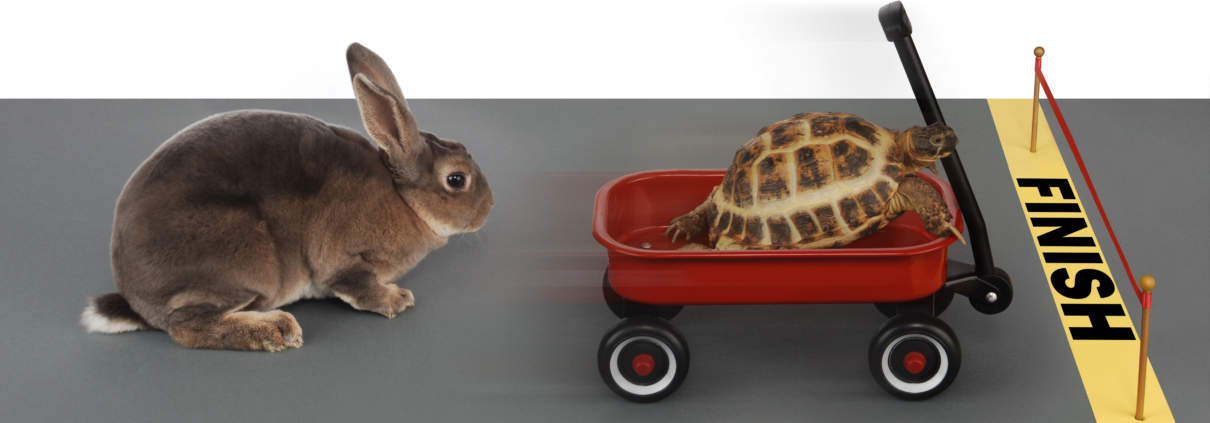It’s not often that I go out on a limb right off the top of these posts, but I suppose coming out against the importance of efficiency could certainly qualify as going against the tide when talking about business.
Of course I don’t typically deal in true business subjects, since my preferred domain is that of family business, where my emphasis is on the family aspects.
Getting things done quickly and efficiently seems like a laudable goal of course, with some notable exceptions.
The main exceptions I’d like to note here are those where you need to bring in the entire wisdom of a group of people, and where it’s important for everyone to feel heard.
Such situations abound in the family circle part of family enterprises, or, said better, enterprising families.
When Finishing Faster Isn’t the Key
I’ve dealt with certain examples of this before, notably in Going FAR? Go TOGETHER, which deals with a scenario involving a group of siblings in the rising generation of their family, preparing to eventually take on leadership roles, both in the business and in the family.
In recent months I’ve been involved in two group processes where I’ve truly embraced the idea of throwing efficiency and speed out the window, with positive results (so far).
The first example took place in a professional organisation I’ve been involved with as a volunteer for the past few years, as part of a committee charged with an important role in putting on our annual conference event.
The second example is ongoing, and has me playing a facilitation and mediation role with a sibling group who share ownership of some legacy assets together.
Professional Development “Live Case” Opportunity
In the first case, my role had recently changed from simply being a member of the committee to now leading it. I had the benefit of following in the footsteps of someone who had done a great job before me, but that also gave me big shoes to fill.
There are always challenges in putting on an annual event in the summer but having to make most of the planning decisions months ahead of time, and these are only magnified by the pandemic’s uncertainty as to what will even be possible regarding large groups six months out.
So we definitely had a number of considerations, lots of moving parts, and a general lack of clarity around much of the information we needed to base our decisions upon.
We also on-boarded three new volunteers to the committee, and the admin person from the organisation was also new, and had never been part of our annual event.
Learning About How to Be with the Group
There was plenty of pressure on us to come to some final decisions but I resisted the temptation to push for some closure on some items that I knew could and should wait.
It was way more important to make sure we took the time to consider all our options, evaluate a number of ideas, and take advantage of the wisdom of all the members of the committee.
As the head of the group, an important part of my role was to set the right tone and pace for our deliberations.
Weighing many interdependent considerations and allowing everyone to share their inputs was more important than the somewhat arbitrary deadlines that could have distracted us.
Getting a Family to Take Their Time
The practice I got from working with that group set me up nicely for a new client situation where I’ve used some of those lessons to good effect.
This sibling group is getting used to some new realities and are learning to work under a more democratic decision-making framework than they were used to.
That kind of adjustment takes time, not only in terms of minutes and hours spent together, but in the days and weeks that are needed for new realities and understandings to sink in to each person’s thinking.
When you combine that with a severe “information asymmetry” between insiders who’ve always played key roles, and those who have spent their lives on the outside looking in, it’s key to set a pace that allows everyone not only to be a part of the process, but to feel like they’re part of the process, on relatively equal footing.
That methodology isn’t the most efficient, but wasn’t it the tortoise who won the race?




